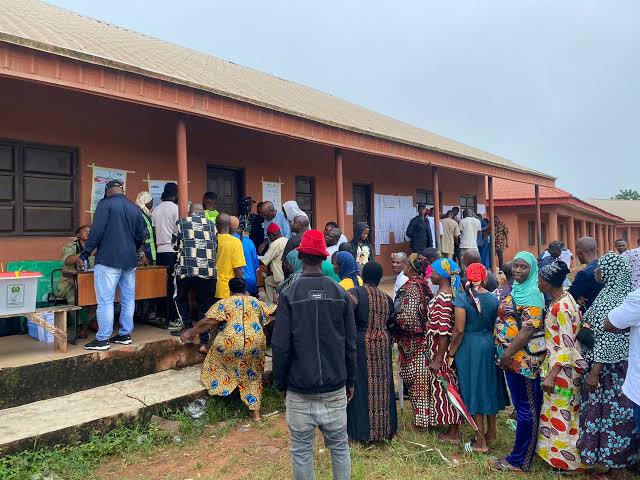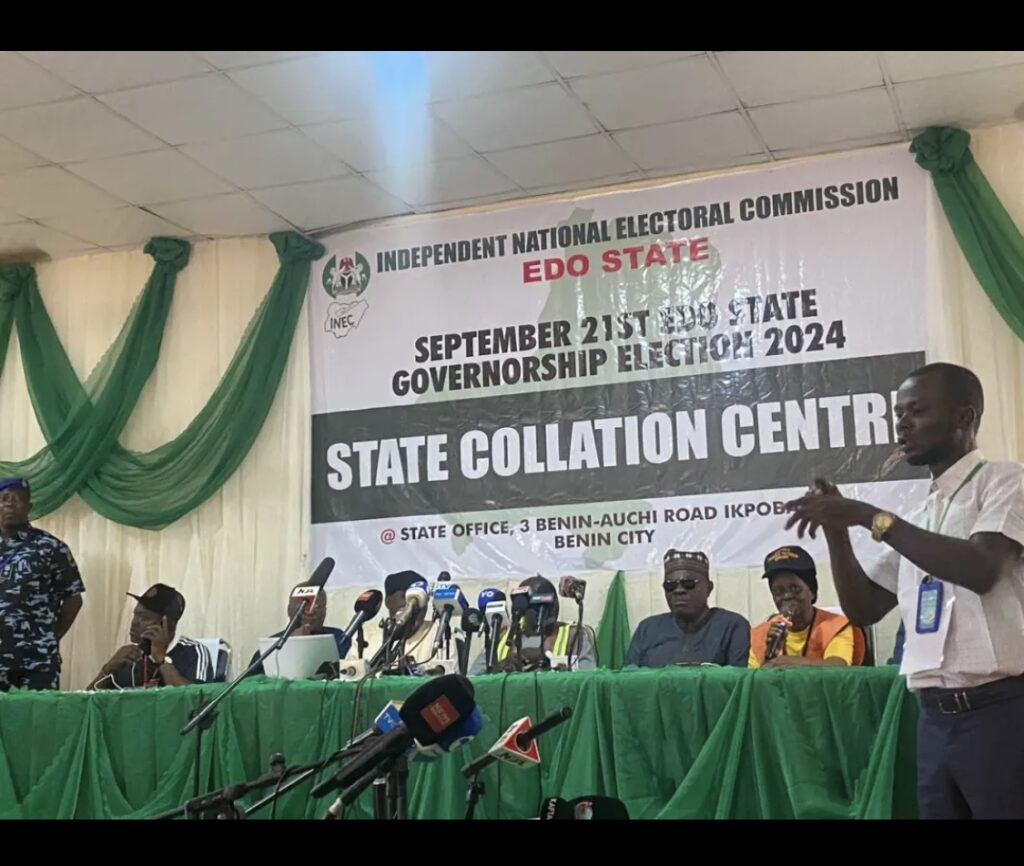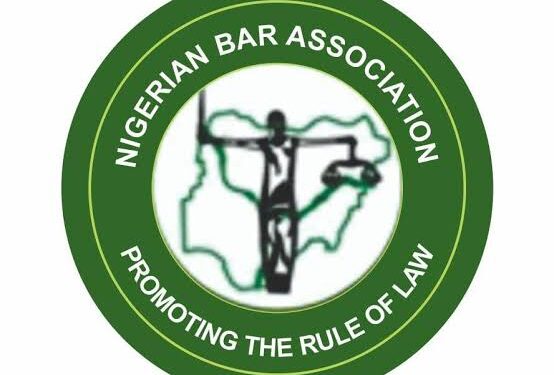The Nigerian Bar Association has published its assessment of the Edo State governorship election held last Saturday, highlighting issues related to low voter participation and the impact of financial inducement. On Sunday, the Independent National Electoral Commission (INEC) announced Monday Okpebholo of the All Progressives Congress (APC) victorious in the election.
As reported by the Returning Officer, Prof. Faruq Kuta, Okpebholo received 291,667 votes, surpassing his nearest rival, Asue Ighodalo of the Peoples Democratic Party, who garnered 247,274 votes. The Labour Party candidate, Olumide Akpata, finished a distant third with 22,763 votes.
The report, co-signed by Bolatumi Animashaun, the leader of the NBA’s Election Working Group, and General Secretary, Mobolaji Ojibara, indicated that the monitoring team observed the election process across all polling units in the state.

In the report issued on Monday, the NBA noted that its monitoring team found that voting materials and officials were frequently delayed in arriving at numerous polling units, especially in Benin City, the state capital. The NBA further reported a complete absence of INEC personnel and electoral materials in certain polling units, as observed by the team dispatched by President Afam Osigwe.
The report indicated that delays were attributed to logistical challenges that impeded the effective initiation of the voting process. It cited Egor Ward I, Polling Unit 30, there were no election materials or officials from the Independent National Electoral Commission (INEC) present, which completely obstructed any voting activities in that unit.
This lack of readiness in certain regions poses a significant concern that must be addressed to facilitate the smooth conduct of elections. Additionally, the monitoring team reported instances of vote buying occurring at various polling units.
The Nigerian Bar Association (NBA) expressed concern that, despite measures taken to combat this issue, financial incentives continue to undermine the integrity and transparency of elections in Nigeria.

It noted, “Numerous attempts were observed where agents of political parties subtly sought to sway voters through monetary offers.” Key issues included low voter turnout, the impact of financial influence, and delays in the distribution of election materials. “Nevertheless, the behaviour of voters, election officials, and security personnel was praiseworthy, contributing to an overall peaceful electoral process.”
The NBA further highlighted the issue of voter apathy, noting that the turnout at polling units was “significantly low” compared to the number of registered voters. In Polling Unit 10, Ward 4, for instance, only 10 out of 1,026 registered voters were accredited.
Reports noted that notwithstanding the adverse weather and accessibility issues, individuals with physical disabilities came out to vote.
“Despite the torrential rain on election day, these individuals demonstrated remarkable resilience and patiently awaited their opportunity to fulfill their civic responsibilities.”
The NBA reported that while the Biometric Voter Accreditation System (BVAS) devices operated effectively in most polling units, some areas experienced technical difficulties.
For example, in Ward 7, Polling Unit 18, Ugbekw LGA, an ad hoc official from INEC noted that the BVAS device displayed the message ‘No Election Ongoing’ even though voting was already reported taking place. The NBA also noted the significant presence of security personnel during the election contributed to maintaining order and mitigating potential security threats.
However, there were reported gunshot incidents in Oliha, Ward Two, which encompasses five polling units in the Egor Local Council Area. The Nigerian Bar Association Election Working Group (NBA-EWG) concluded that the 2024 Edo state governorship election was largely conducted in an orderly manner. Further observations indicated that the number of male voters surpassed that of female voters.
In its recommendations, the NBA urged INEC to prioritize the prompt deployment of election materials and personnel to prevent delays in future elections. In its conclusion, the NBA emphasized the necessity for enhanced voter education initiatives to rebuild public confidence in the electoral process and to promote increased voter engagement, particularly among women and youth.



































